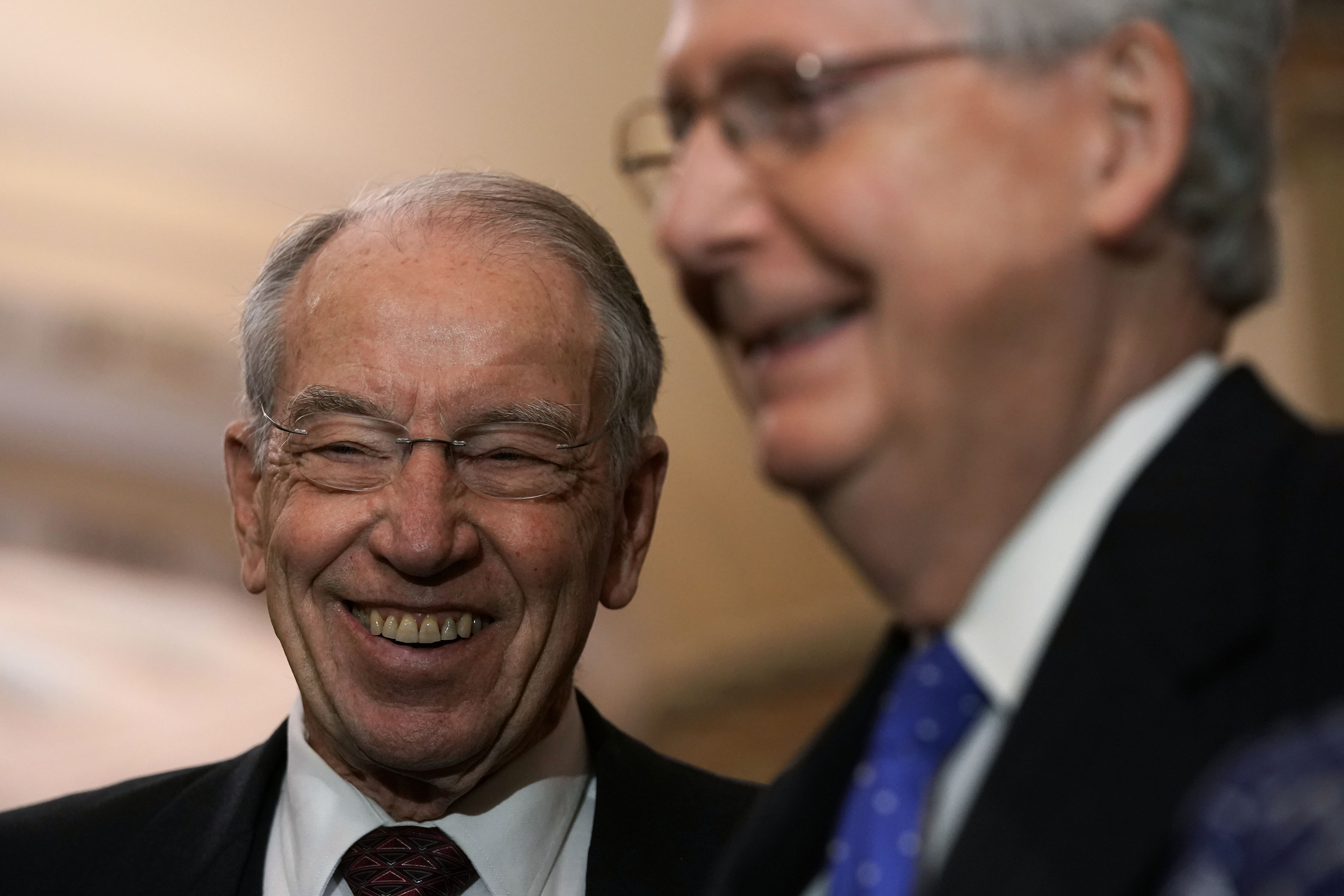From the onset of his presidency, Donald Trump has pledged to crack down on the “American carnage” that he (spuriously) claimed was threatening the livelihood of honest, decent taxpayers. Oh, how the times have changed: The Trump administration now seems set to implement one of the most significant criminal justice reforms in years.
After weeks of jousting between Senate Judiciary Committee Chairman Chuck Grassley (D-Iowa) and Senate Majority Leader Mitch McConnell (R-Kentucky), Congress appears poised to pass the First Step Act, a bipartisan criminal justice bill that would, among other measures, reduce especially harsh prison sentences for federal inmates (an admittedly small fraction of the broader 2.1 million inmate-strong prison population in the United States). Assuming the bill passes the Senate, outgoing Speaker of the House Paul Ryan (R-Wisconsin) has stated his plan to introduce the legislation in the House before the end of the year, the Washington Examiner reports. (It’s not just politicians: The American Civil Liberties Union is in favor of the bill too.) And with the White House on board with the First Step Act as recently as August, it seems likely that Trump will mark the halfway-point of his first term with a major bipartisan victory.
The legislation, which is not without its opposition among lawmakers,would immediately liberate some 2,600 federal prisoners slapped with punitive sentences prior to 2010—the year, as the Marshall Project points out, that mandatory minimums were eliminated under the Obama-era Fair Sentencing Act. The First Step Act would present the most significant blow against mandatory minimums since the Obama administration: The Fair Sentencing Act “reduced the huge disparity in punishment between crack cocaine and the powdered form of the drug,” the Marshall Project reports, a disparity that is demonstrably racial in its reach and impact. “The First Step Act would make the reform retroactive.”

(Photo: Alex Wong/Getty Images)
Given Trump’s strident rhetoric around criminal justice, his new role as champion of prison reform seems odd. But it’s all a matter of politics. Trump even said so himself in August, framing the First Step Act in economic terms rather than ethical ones. “One of the single most important things we’re doing is to help former inmates in creating jobs,” he said, underscoring the vocational training programs built into the House version of the First Step Act. “We’re creating so many jobs that former inmates, for the first time, are really getting a shot at it, because [they] weren’t sought and now they are being sought […] because our unemployment rate is so low—historically low.”
To a political strategist, the First Step Act is a fantastic gift for a Republican Party about to lose its stranglehold on Congress. The legislation offers an opportunity to accomplish what the Democrats couldn’t in the wake of the Ferguson unrest in 2014. Democrats, of course, may weaken their political capital by blowing up the deal in favor of a stronger reform package in January, but in that case Trump comes out looking like a reformer compared to his opponents on the left. Consider what The Atlantic‘s Russell Berman wrote back in May:
The Democratic quandary on the prison bill is a familiar one for a party out of power: Do they seize an opening to work with the administration to make incremental progress on a key priority, or wait for the chance to tackle the issue on their own terms once they take back control? It’s especially vexing for Democrats pondering a temporary alliance with Trump, a president they’ve accused of antagonizing the at-risk minority populations who would most stand to benefit from criminal-justice reform.
Regardless of the political calculus, there’s a clear victor in the case of the First Step Act: the thousands of Americans thrown into prisons under draconian sentencing guidelines.





